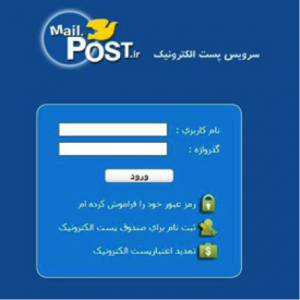Iran â powered by email?
31 Jul 2013
Most marketers don’t typically look to Iran for inspiration on email but there are definitely some interesting things happening there at the moment. Last week, for instance, saw the announcement that Iran has launched its own national email service. All Iranian residents from school age and upwards are now required to register for an email account, which will be assigned to them upon provision of their full name, postal address and, National ID number.

The new compulsory email address will be in the format @post.ir, and is apparently intended to support “mutual interaction and communication”. The Iranian Minister of Telecommunication and Information Technology also confirmed that official communication between government and citizens would eventually be redirected through the national email service.
As champions of email marketing, we are all probably nodding, and saying “of course”. Makes sense, right? Why on earth aren’t other governments modernising and streamlining their communications via email? As arguably the fastest, most effective (and cost-effective) way to have direct dialogue with your audience it would seem to be the obvious move.
And what a dream marketing comms job that would be? Just imagine how successful your campaigns would be with a nationally controlled email service, (at least, once word had got out about email analytics and after a few police visits to “inactive subscribers”…) You could be absolutely sure that all your emails would be opened, You would be continuously gratified by all the engagement you received on every email. You wouldn’t have to worry about deliverability or how your lovely creative would render on different mail clients….
It’s difficult not to have a more sceptical view of this action however, and Iran certainly has a long history of control and censorship which a national email service could certainly support. Following the recent ‘Prism’ saga there has been a lot of focus on the whole topic of email metadata – which looks at intelligence garnered from analysing email flow patterns, recipient data, location of interactions etc. As well as enabling the government to communicate “safely” with their population, it is not too far-fetched to suggest that it might also enable the government to “safely” monitor their citizens, gaining visibility on networks, connection, and any unusual activity.
There are also other concerns being voiced about censorship and the potential threat to other email clients that are popular in Iran, like Gmail and Yahoo, which may be restricted. There have already been reported examples where the Government has “disrupted” access to Gmail, and even an alleged phishing attack on Gmail users in Iran prior to elections, where duped users effectively surrendered access to their communications to their government.
There is a new President due to be sworn in later this year, and there is a degree of speculation that he will actually reverse this decision about the national email service. If the major intention of this email platform is control, espionage and restriction of outside influence , then there will probably be many relieved citizens. The core idea of shifting the focus of government communication to email, and requiring an email address to be associated with each citizen officially (whether state-run or other) seems fundamentally sound, and surprising that more governments are not adopting.





Please login to comment.
Comments